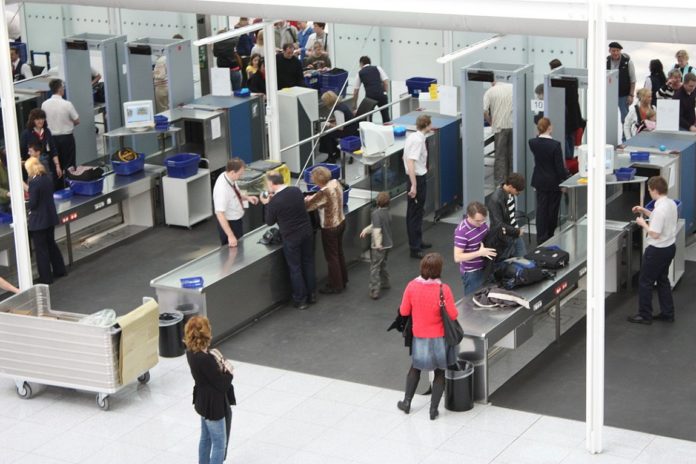News that a Muslim woman was made to remove her headscarf by security at the OR Tambo International Airport has raised censure. The hijab is deeply connected to the spiritual identity of Muslim women. But more than ever, the incident has highlighted a need for a broader conversation about the respect for bodily integrity.
The Daily Vox reported that security made Khadeejah Kaffoor, a Muslim woman travelling at OR Tambo International Airport, remove her headscarf. Some questioned why this could be construed as a problem, while others related similar incidents of being forced to remove doeks and headwraps.
The South African Constitution states that every South Africa has a right to dignity and religion. “Everyone has inherent dignity and the right to have their dignity respected and protected,” according to the Bill of Rights. For a Muslim woman, removing her hijab is a rights infrigement.
What the hijab means to Muslim women
“Hijab refers to the headscarf and modest dressing by Muslim women,” gender activist and researcher at the Religious Studies department at the University of Johannesburg Saffiyah Surtee said.
The hijab represents different things for different women, Surtee said to The Daily Vox. This includes an expression of identity, a means to gain closeness to God as a spiritual practice of humility, and also to act on two verses in the Qur’an which are interpreted to mean women should cover their hair.
Researcher at the Religious Studies department at the University of Cape Town Nafisa Patel told The Daily Vox Muslim women interpret and observe the hijab in different ways. Patel’s research focuses on issues of gender and Islam in South Africa.
“Although Muslim women may interpret and therefore observe the hijab in varying ways, such as modest dress and comportment with or without head and/or face covering, for many Muslim women the hijab/ head covering represents an important aspect of their faith expression,” Patel said. “This observance is not only considered a symbolic representation of their religious identity, but is regarded as part of a Muslim faith imperative that have certain requirements or restrictions in terms of what parts of the body may be seen and by whom,” she said.
Whether these requirements or restrictions may be relaxed in certain extenuating circumstances, such as for medical or security reasons, are part of a broader discussion within the faith tradition. But these are deeply personal issues and Muslim women may negotiate these considerations in very different ways. For example, removing shoes or socks and exposing one’s feet as part of security protocols may be regarded as being just as offensive or religiously taboo for some, but not others, Patel said.
Removing the hijab is an infringement on dignity
Many Muslim women are strict in their observance of the hijab. “Being asked to remove [their] hijab would make some Muslim women feel stripped of their dignity and humiliated, especially in front of unrelated men,” Surtee said. While it is fair to ask someone to remove their hijab for security checks, this has to be done with sensitivity.
“It is indeed a violation of a Muslim women’s rights if asked to suddenly remove their hijab without being afforded privacy to do so,” Surtee said. The correct way for security to ask a Muslim woman to remove her hijab would be in a private cubicle with women security personnel, for example.
“It could be taken as being Islamophobic, by randomly targeting or screening Muslim women,” Surtee said. “If this is a security measure, then there should be procedures in place for women who are uncomfortable removing their headscarves. Importantly, we need to ascertain if Muslim women are specifically being targeted for these security checks. If so, why in South Africa where Muslims are very much ingrained in the social fabric?” she added.
Airports Company South Africa (ACSA) says the rules pertaining to the airport are administered by the South African Civil Aviation Authority (SACAA). This rule allows for “random checks to ensure that procedures are being followed.”
According to the security manual, the security officer “must know what is being allowed into a restricted area.” Security officers, reportedly, can also conduct a further search until they are satisfied with the security.
Airport security and the broader conversation about bodily integrity
“Respecting a person’s bodily integrity is not limited to their religious beliefs, age or gender. It is a consideration that should be extended to everyone when enforcing any security measures that are invasive and/or intrusive,” Patel said.
Patel says she would be cautious in framing the incident as solely a violation of Muslim women’s hijab rights. For example, Patel says, a cancer patient undergoing chemo treatment may feel violated if forced to remove their head covering to expose their loss of hair, or a paraplegic being asked to remove their prosthetic limb or other similar instances.
“I don’t think Muslim women’s hijab is necessarily an exceptional consideration. A more productive conversation would be to how to create more empathetic and respectful security protocols that are sensitive to everyone’s right to bodily integrity,” Patel said.









